
“IN CRISIS: A Search for Solutions” shows how the Jackson County, Missouri, community is integrating mental health professionals into policing and other areas of emergency response. When an officer shot and killed Maria Pike and her infant Destinii Hope during a domestic assault call, our team started to question the systems in place that led to the fatal shooting. Our persistent reporting revealed a mental health professional, also known as a co-responder, was moments away from offering help before Pike grabbed a large knife and lunged at police. This page showcases how one deadly afternoon put a spotlight on mental health emergency response. The web page is best experienced on a desktop browser.
Maria Pike’s story is just a snapshot of the situations officers encounter every day. In cities like Independence, mental health co-responders work hundreds of calls each year where they are able to provide real-time crisis assessments, de-escalation and refer people to ongoing services. We followed an Independence Police Department officer and co-responder as they patrolled the city.
Co-responders, typically trained in social work or behavioral health related fields, are part of police departments throughout the metro. Each municipality handles the role differently. In Independence, co-responders ride alongside officers as they patrol their designated area. The mental health professionals wear plain clothes and do not carry weapons.
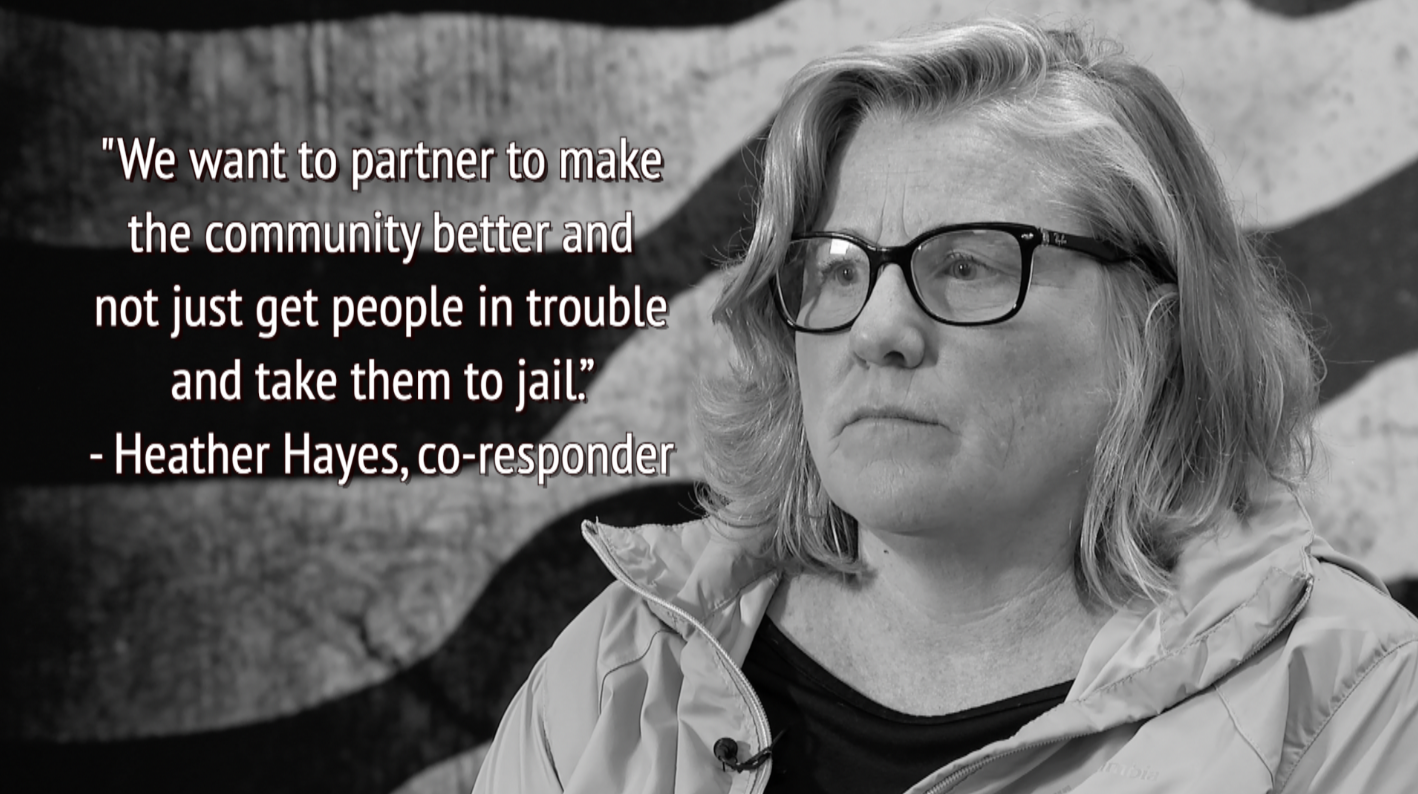
Heather Hayes starts most of her days calling the people she’s interacted with over the last few days. When she jumps in the car with a uniformed police officer, anything is possible. Dispatch can divert their unit to calls anywhere throughout the city that lend themselves to a crisis, which ranges from substance usage to domestic assault or suicidal thoughts. Hayes said the greatest challenge she faces is navigating the intricate mental health system with the people she comes into contact with. Hayes continues to ride in a squad car because she sees it as her mission to change the way citizens view policing during mental health crises.
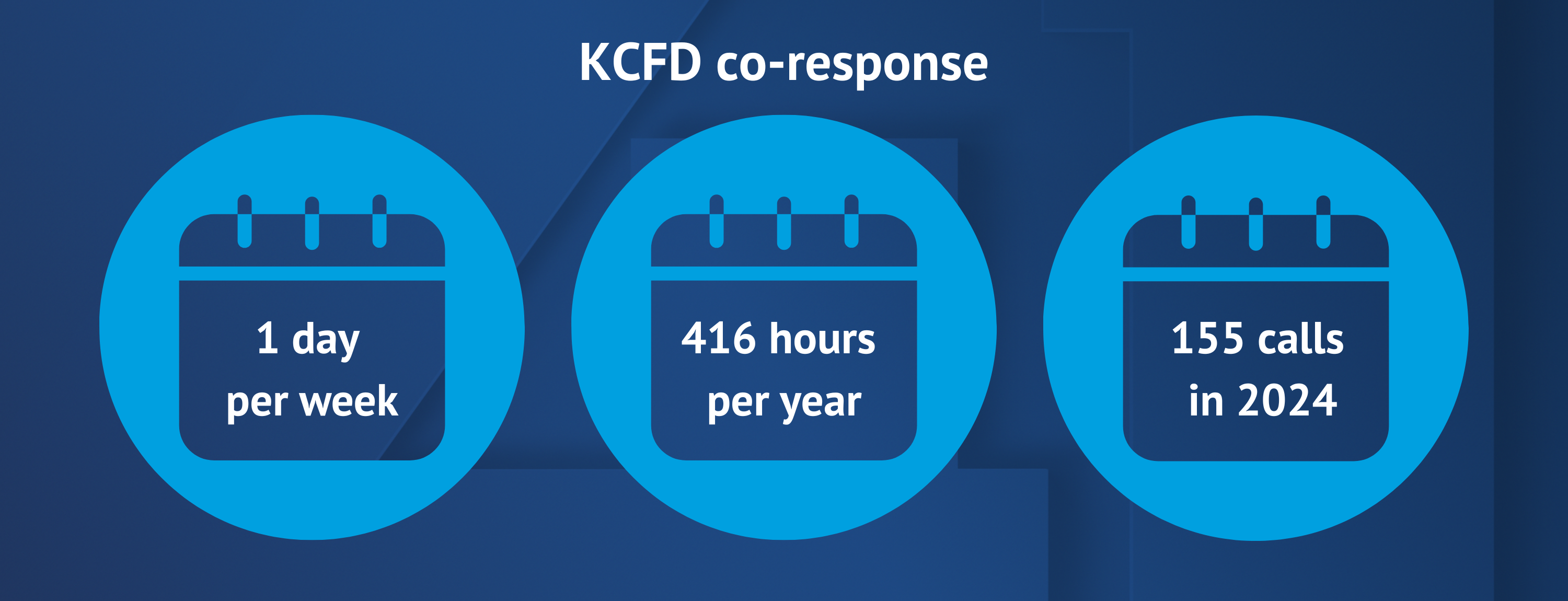
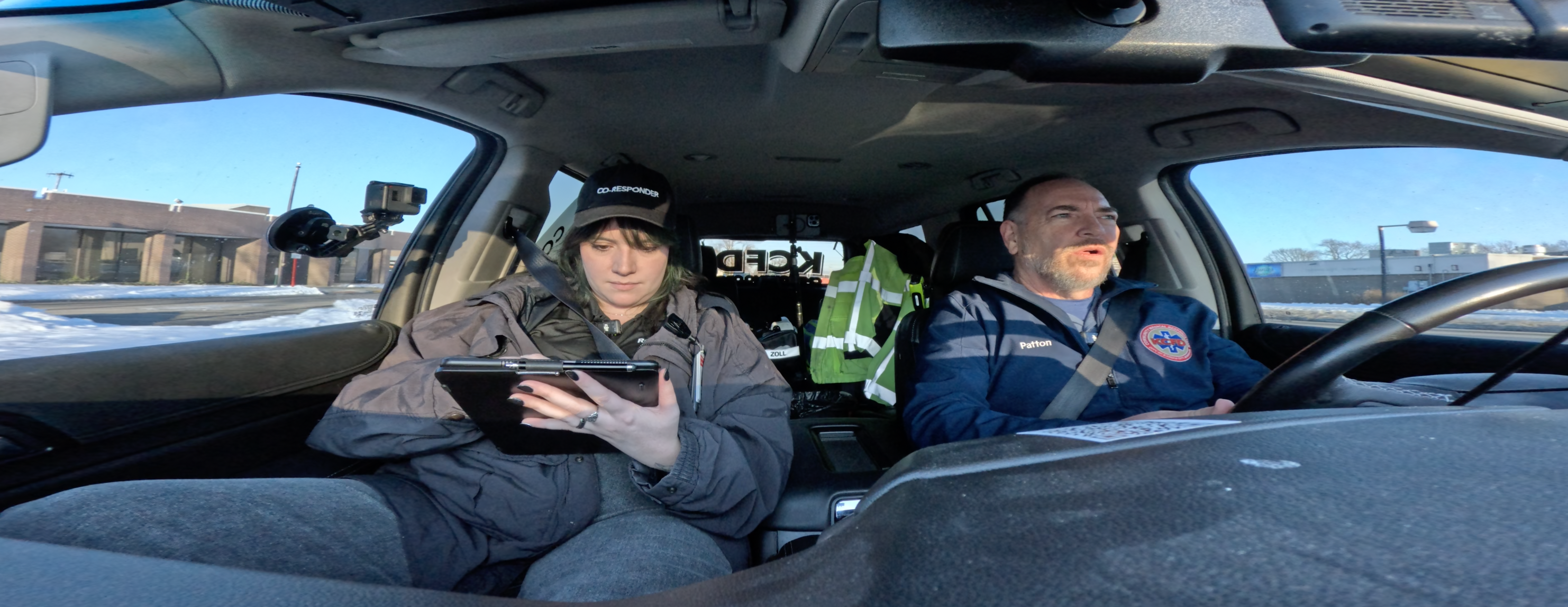
Hannah Bisges works for ReDiscover, a local community mental health center. Bisges is trained in social work and helps connect patients with mental health services in their area. One day a week, she is paired with a community paramedic in south Kansas City to respond to calls that involve mental health, substance use or other related crises.
Scott Patton has more than three decades of experience as a paramedic. He recently transitioned into the role of community paramedic. He responds to emergencies alongside other first responders but is focused on the long-term care of the individual. Through his partnership with mental health co-responders, Patton connects patients to services and organizations willing to provide behavioral health treatments.
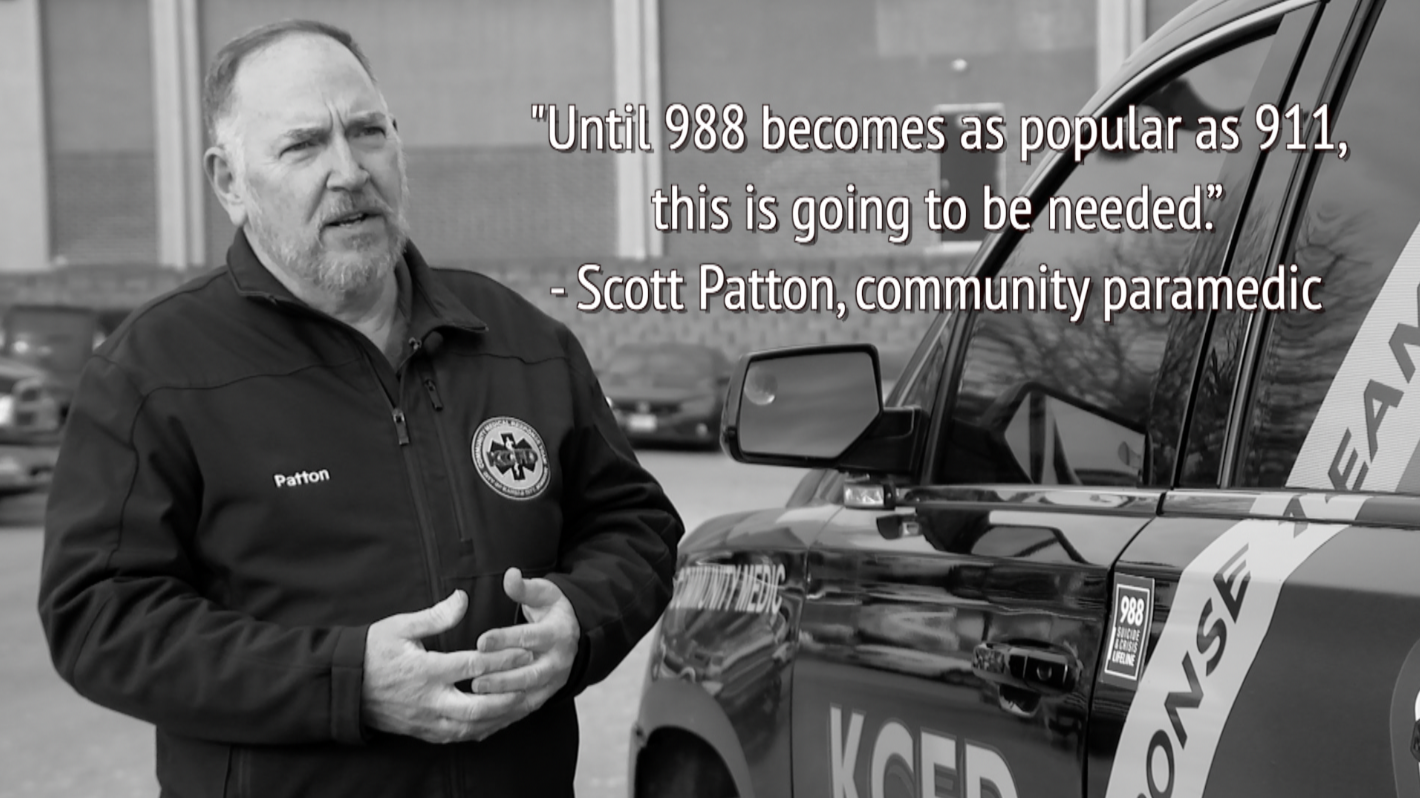
Throughout Scott Patton’s career as a paramedic, he saw every kind of emergency. Now, more than ever, Patton is seeing a new kind of emergency surrounding mental health. He said having dedicated, trained professionals who know the best way to handle mental health crises benefits all facets of emergency response. Patton suggested “a fourth response” focused on mental health could be sustained in our area “because there are just enough of those calls out there to make it happen.”
More than 50 years after the United States established the universal emergency number, 911, the country rolled out a national suicide and crisis lifeline. Since 2022, the 988 lifeline has answered more than 14 million calls, texts and chats. In some cases, local community health centers, like ReDiscover, follow up on calls from people in the metro. Mobile crisis responders have the ability to conduct in-person conversations with people. Mobile responders are similar to co-responders, but they do not work within a police department.
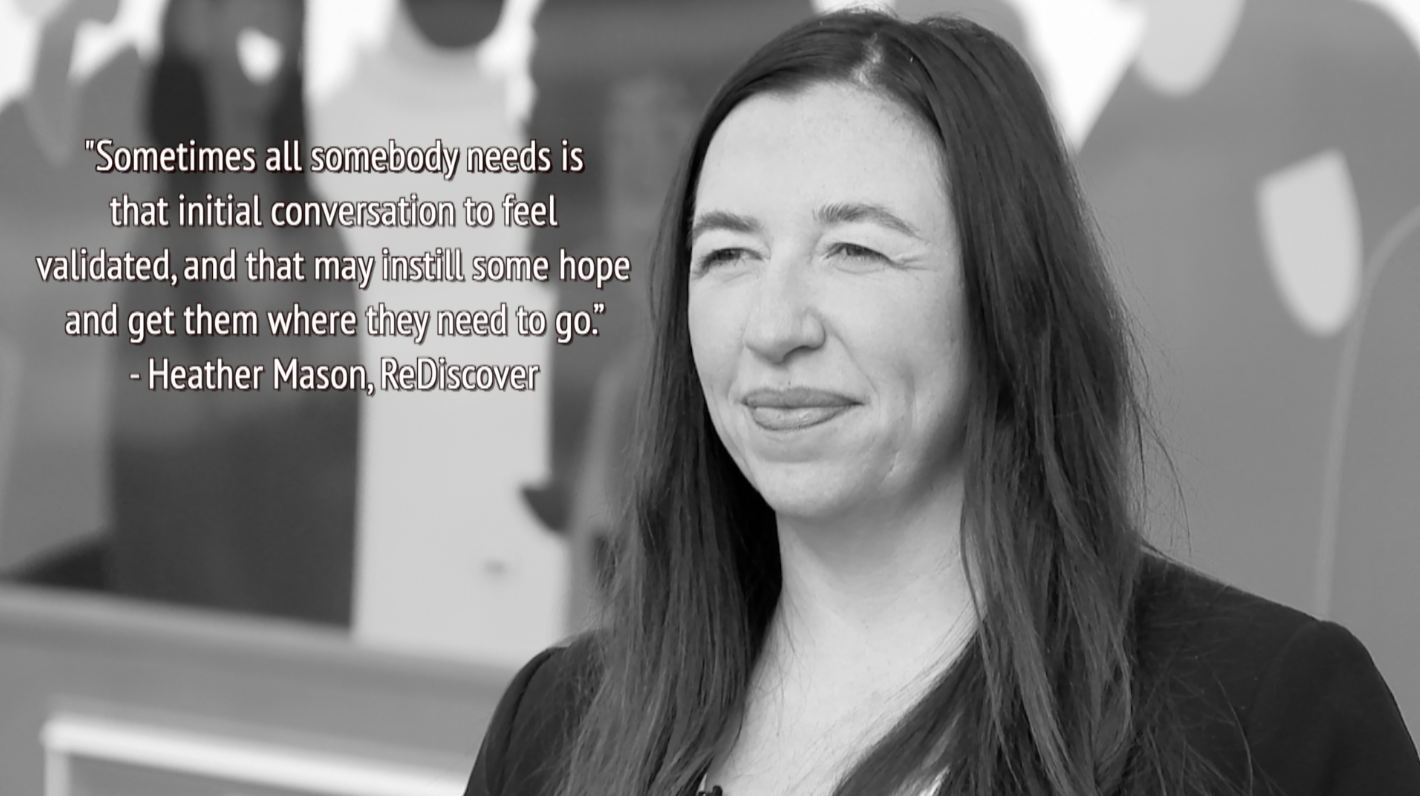
Heather Mason is ReDiscover’s manager of mobile crisis response services. Mason shared some data from her organization with KSHB 41 that showed a steady increase in services year over year. In her eyes, increased demand for ReDiscover’s services is a positive move because ReDiscover, as well as other mental health service providers, is meeting people the group hasn't come into contact with before.
Reporter: Abby Dodge | Editor: Chase Lucas | Photographer: Chase Lucas | Drone operator: Chris Morrison | Producer: Chase McNamara, Abby Dodge | Executive producer: Ryan Takeo | Web designer: Addi Weakley | Digital Director: Sam Hartle | Promotions: Chris Allen | Special access provided by: ReDiscover, Independence Police Department | Data provided by: MARC, ReDiscover